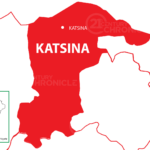A House of representatives committee on security and human rights is to investigate accusation of trade in human organs, after an allegation that China seized a cargo ship that sailed from Nigeria with 7,200 refrigerated penises.
The story behind the allegation has since been determined fake news by fact checks.
Two representatives, Rimamnde Shawulu Kwewum and Olajide Olatubosun, sponsored the motion during plenary on Thursday.
The lawmakers have linked growing cases of missing persons, ritual killings and human trafficking out of Nigeria to the Shanghai Port, called Red Market, where the refrigerated penises were packed in 36 boxes and labelled as plantain.
“About two weeks ago, acting on the information provided by an anonymous source, Chinese Authorities seized a cargo ship that sailed from Nigeria with 7,200 refrigerated penises, which were found in 36 boxes labelled as plantain on the ship that harboured at the Shanghai port called Red Market,” they stated.
But the allegations come from a satire website and has been debunked as fake.
The story was first published on March 19 by World News Daily Report, according to a fact check by AFP.
It has been shared nearly 700 times on Facebook and reposted by online news sites including Naija Tell, The Podium, Gbetu TV, Town Crier and Sundiata Post.
This article surfaced about a year after AFP Fact Check debunked a different story from the same satirical website, whose slogan is “facts don’t matter”.
AFP Fact Check found that the recent article from WNDR was shared online by several social media accounts known for promoting the activities of Nigeria’s separatist Indigenous People of Biafra (IPOB).
Lawmakers rally
The lawmakers who sponsored the motion to have a House committee investigate human organ trade said Chinese General Administration of Customs had alerted that an increasingly large number of armed groups in Africa use organs which are harvested in unsanitary conditions to finance their nefarious activities.
They cited media reports years ago of “horrifying stories” of alleged harvest of organs of Nigerians and other Africans stranded in Libya for sale in Europe, the Middle East, America and China.
“Perpetrators of the illicit trade generate between 600 million to 1.2 billion dollars profit annually and have been encouraged by poor security situations to use the third world as the major suppliers.
“The increasing cases of missing persons, ritual killings and trafficking of persons out of the country may be linked to the Red Market which can be attributed to the trafficking of young men and women who end up being victims of organ harvesting.
“The increased banditry, kidnappings and spiraling violence in several parts of the country today make those parts of the country vulnerable and provide safe havens and ready supply channels for the illicit activities,” they added.
The House Committees on Human Rights and National Security and Intelligence to investigate the illicit trade value chain known as Red Market or illicit market in human organs and report back within ten weeks for further legislative action.

 Join Daily Trust WhatsApp Community For Quick Access To News and Happenings Around You.
Join Daily Trust WhatsApp Community For Quick Access To News and Happenings Around You.

